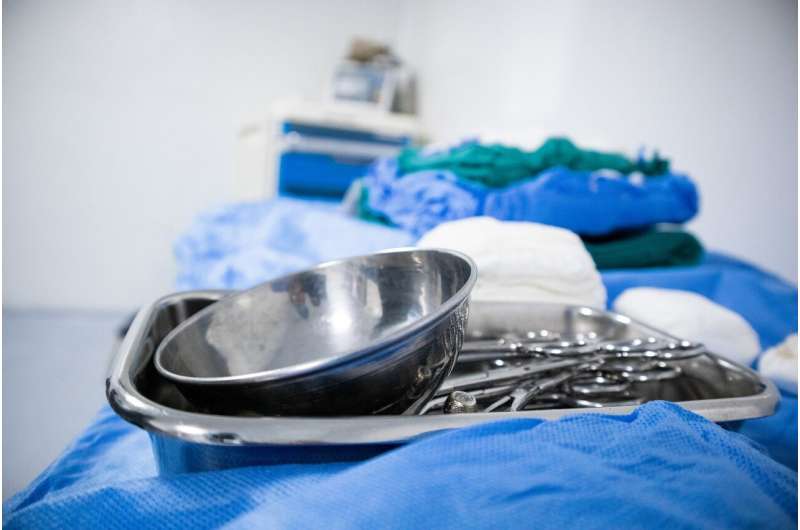Enhanced recovery protocols improve patient outcomes in minimally invasive gynecologic surgery

Following Enhanced Recovery After Surgery (ERAS) protocols designed to minimize surgical stress results in improved patient recovery and satisfaction, reduced postoperative complications and shorter hospital stays, according to a review of ERAS programs in minimally invasive gynecologic surgery by UT Southwestern researchers.
"The ERAS concept has been implemented in many surgical subspecialties with positive outcomes. Its application to minimally invasive gynecologic surgery is no different and has been shown to provide high-quality clinical care for patients," said Lisa Chao, M.D., Assistant Professor of Obstetrics and Gynecology at UT Southwestern and lead author of the review. In fact, a mainstay of ERAS principles is the use of minimally invasive techniques.
Though minimally invasive techniques alone can improve patient well-being after surgery, its combination with other ERAS principles creates added effects. The review, published in Obstetrics and Gynecology Clinics of North America, outlines many components of ERAS that can be implemented before, during, and after surgery to enhance outcomes.
Prior to surgery, physicians should identify patient risk factors and then educate and counsel the patient on expectations, including how to prepare for surgery, how long they can expect to stay in the hospital, and what recovery post-surgery may look like. ERAS protocols additionally recommend the use of pre-surgery medications to prevent activation of pain receptors during surgery and to avoid nausea and vomiting post-surgery.
During surgery, ERAS principles guide collaboration between surgical staff and anesthesia providers by detailing the preferred methods and agents to be used, managing body temperature, and handling fluid intake. Preemptive pain relief may also be included.
Getting the patient moving early after surgery, quick return of bowel function, and a multimodal approach to pain relief are other key goals. Early feeding and minimizing intravenous hydration are typically recommended, while the use of opioids should be minimized or avoided, if possible. Instead, the approach to pain relief can include the use of nonsteroidal anti-inflammatory drugs, acetaminophen, tramadol, or COX-2 inhibitors.
"The implementation of ERAS programs in minimally invasive gynecologic surgery results in substantial improvements in clinical outcomes with higher rates of same-day discharge, reduction in postoperative nausea and vomiting, improved patient satisfaction, and decreased opioid consumption without an increase in complications, readmissions, or health care costs," said Dr. Chao. "And these findings hold true for UT Southwestern."
More information: Lisa Chao et al, Enhanced Recovery After Surgery in Minimally Invasive Gynecologic Surgery, Obstetrics and Gynecology Clinics of North America (2022). DOI: 10.1016/j.ogc.2022.02.014




















